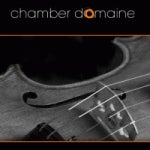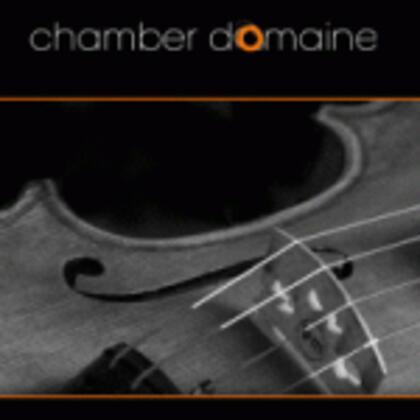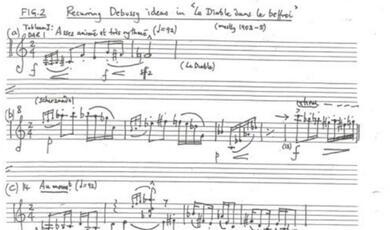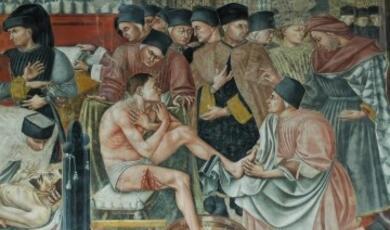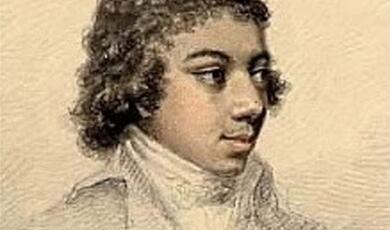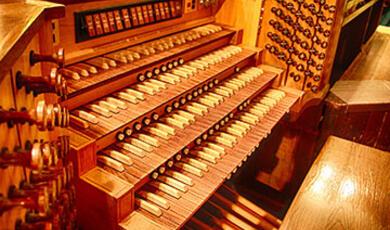Britten and Bridge
Share
- Details
- Text
- Audio
- Downloads
- Extra Reading
Part of the Made in Britain series of four lectures exploring British instrumental chamber music and song ranging from Bliss through to the music of today, giving a rare opportunity to experience chamber music in an intimate setting. Each concert will be preceded by a talk by Thomas Kemp, Director of Chamber Domaine.
Pieces performed:
Frank Bridge (1879-1941)
Phantasy in F sharp minor for Piano Quartet, H94 (1910)
Benjamin Britten (1913-1976)
Seven Michelangelo Sonnets for Tenor and Piano, Op. 22 (1940)
- Sonetto XVI - Si come nella penna e nell'inchiostro
- Sonetto XXXI - A che più debb' io mai l'intensa voglia
- Sonetto XXX - Veggio co' bei vostri occhi un dolche lume
- Sonetto LV - Tu sa' ch'io so, signior mie, che ti sai
- Sonetto XXVII - Rendete a glio occhi miei
- Sonetto XXXII - S'un casto amor, s'una pieta superna
- Sonetta XXIV - Spirto ben nato, in cui si specchia e vede
Frank Brigde (1879-1941)
Cello Sonata, H125 (1913-1917)
- Allegro ben mopderato
- Adagio ma non troppo
Performers:
Christopher Lemmings - Tenor
Stephen De Pledge - Piano
Thomas Kemp - Violin
Nick Barr - Viola
Adrian Bradbury - Cello
Download Text
BRITTEN AND BRIDGE
Thomas Kemp
Today's concert celebrates two very remarkable British composers, Frank Bridge and his student Benjamin Britten.
Frank Bridge was born in 1879 in Brighton, and his father was the bandleader of the Brighton Empire Theatre. Frank Bridge was the tenth of twelve children. His family were very much working class, and they were very hard working. His father was a violinist and he worked very long hours. Frank Bridge was brought up in a household where he was enabled to play a lot of music, and he often used to go and play the violin in the theatre band as a boy. He was obviously a very talented string player, and this became more evident as he entered his teens. So he won a scholarship to the Royal College of Music, where he studied violin and composition with Stanford, who was a very strict teacher/disciplinarian, very much in the Brahms school of composition.
Whilst he was at the Royal College, Bridge showed his great talent as an all-round musician. He was a very good violinist, and he became an excellent viola player. Very early on in his career, he did some quite incredible things. For instance, he played the viola in Joseph Joachim's string quartet when they came to London. Their viola player was taken sick, and Bridge replaced him at very short notice at the Wigmore Hall. This set a pattern, and in the early 1900s, through to the outset of the First World War, he did some quite incredible concerts as a viola player. He gave the UK premiere of Debussy's marvellous String Quartet. He also worked with Maurice Ravel and played the introduction Allegro at its UK premiere, in the presence of Ravel. He also played Piano Quartets with Gabriel Fauré playing the piano.
He was an outstanding viola player and violinist, but he was also a marvellous composer right from the start. But because he came from such a humble background, he had to earn a living, so he worked incredibly hard playing, and writing miniatures for piano and particularly for violin which amateurs could play at home, and that was how he made his living. There is a vast number of early piano pieces - songs, and also instrumental chamber music - which is now mostly in the Royal College of Music Library. Much of it is not played now, but it was very much part of the Edwardian scene. People would have a little two-minute piece that they would be able to learn and play at home for their friends. Much of that side of Bridge's music has mostly been forgotten about, but it is actually a fantastic and very broad repertoire.
Tonight we are playing the Phantasie Piano Quartet for piano and three string instruments - violin, viola, cello - was written in 1910 for a competition. There was a man called Cobbett, who set up a competition to write fantasias or fantasies, to try and revive a tradition that had its roots in renaissance and early baroque music. Purcell wrote Fantasias for Viols, which are absolutely marvellous pieces. Actually, during the 20thCentury - we will come onto this a little later - these fantasias were to be a great source of inspiration for Benjamin Britten, particularly in his instrumental music, dating from the '40s through to his death in 1976. But the fantasies that Bridge wrote were for this competition that was set up to revive the genre. The Phantasie Piano Quartet of 1910 whihch we are to perform has a very clear arch-shaped structure, and this was something that is very characteristic of much of Bridge's music. It was really from the fantasies that he wrote from 1910, and slightly before that, that he got this sort of idea of how you could have something of a cyclical form in one movement.
One of his greatest works is actually a Violin Sonata, which is from 1932, towards the end of his life. It is a very fantastic piece which is very heavily influenced by Alban Berg and the Second Viennese Schools, and it is quite a dark piece in many ways. This too has a very arch-shaped structure, and it comes really from these fantasies that he wrote in the earlier part of his career.
What you will hear in this fantasy that we are playing tonight is a great sense of pastoral lyricism. It is very rich music, very sonorous, very heartfelt, and some of it is quite mercurial, but it is very much in the Edwardian Romantic, 19th Century tradition of composition. Some of the music sounds a little bit like Vaughn Williams or Elgar in this particular piece. But also, if you listen very closely, you can hear the influence of the French composers, and obviously, around this time, he was working with people like Ravel and Fauré as an instrumentalist, and you can hear this kind of French influence in the music. There are the very slick melodic lines, the effortless way that he can change from one tonal area to another, and this is something that Bridge is an absolute master of in his songs - the art of kind of leading you through a text and using harmony to underpin what is going on in the words.
The Cello Sonata, which we will hear at the end of the programme, is one of Bridge's most fantastic chamber pieces; it is a masterpiece. Again, it shows very much this influence of Alban Berg and Schoenberg, but also the Englishness of the music is very interesting. Because of the dates of this work, written just before the beginning of the First World War and actually during the First World War (he completed it towards the end of the First War, in 1917), this piece bridges a gap between pastoral idyll and what could perhaps be seen as shattered hope. Because of this, what you hear in this piece is some very searching music, but also some very elegant, soulful in a way, but romantic music. It is an interesting piece, and it does bridge the gap between these two periods: before the First War and towards the end of the War.
In one of the earlier concerts we have done, we heard Walton's Façade, and the idea that jazz became very important to British composers after the First World War holds very true. What is interesting about Frank Bridge is that he became less popular as a composer as he got older and, by the time of his death, his music was hardly performed at all. In 1911, he wrote a wonderful symphonic piece called The Sea, and this was performed very widely. Up until the 1930s, it used to appear quite regularly at the Proms. His chamber music used to appear very much in concerts until the sort of mid-'20s and then you find that his popularity wanes.
It is very interesting what happened to Bridge, because he met an American philanthropist, Elizabeth Sprague Coolidge, who funded a lot of composition and she also set up a music festival in Berkshire in the States, and many of the world's great performers went to play there - people like Casals and Rudolf Serkin. She came to give Bridge an annuity for the rest of his life in the early '20s, and so he was able to compose without having to worry too much about working.
Needless to say, he still was very busy as a conductor after the First War. He was known as the Ambulance Conductor, because he was always the person that they called on when someone fell sick! Nevertheless, when you read the concerts he was doing: he conducted regularly at Covent Garden, and he did several tours of the United States - conducted the New York Philharmonic, and the Symphony Orchestras in Boston, Detroit, Pittsburgh - you can understand that he was a very skilful conductor. Also, by all accounts, the players loved him, but typically, because he was British and his surname didn't end in 'ski' or some kind of foreign accent, he was rather overlooked. This was something that was a cause of a lot of bitterness to him.
In many ways, after the First War, you find that his music becomes much darker and it is much more deep and sometimes slightly ambivalent. The Violin Sonata that I mentioned is a masterpiece, but it is actually a very dark work in many respects. He is a fantastic composer, and fortunately, now people are beginning to recognise his true greatness, and I would actually go as far as to say that he probably is one of the greatest British composers, and certainly one of most underrated. So he is well worth exploring, particularly the orchestral works and the chamber music, which is fantastic.
There is an interesting connection here with Frank Bridge. When Bridge was at the Royal College, he had a friend called Audrey Alsten and she played the violin too. In fact, his wife was also a violinist in the same year at the Royal College, and they remained friends. Audrey Alston married a vicar and moved up to a parish in Norfolk, and Audrey Alston became Benjamin Britten's first violin teacher, as a young boy, aged seven or eight. So when Bridge's symphonic poem, The Sea, was being played up at the Norfolk and Norwich Festival, Benjamin Britten was brought along to meet Frank Bridge, the composer, by Audrey, who had been a student with Bridge at the Royal College. Benjamin Britten had been a prolific composer from the age of seven. Some of this early music found its way into pieces like the Simple Symphony, which he composed as a young man but the material was from a much earlier period.
Frank Bridge did not teach composition; he taught violin and viola, and obviously he was a composer, but he did not teach composition itself. But he was so taken aback by the quality of Britten's work that he took him under his wing. In fact, in letters, he describes Britten as his adopted son. Britten was also incredibly affectionate towards Frank Bridge, because in his opinion Bridge gave him everything. He used to go and stay at his house in Sussex and they used to spend a lot of time talking about painting and poetry, all kinds of cultural things, and it was a huge influence on Britten as a young teenager, being befriended by Bridge and his wife.
Bridge also introduced Britten to what might be considered the European avant garde. He actually introduced Britten, when he was teenager, to Arnold Schoenberg when he was in London, and Britten was introduced to the music of Alban Berg and also to Stravinsky, as well as the French composers such as Debussy, who Frank Bridge really admired and respected. This was to have a lasting influence on Benjamin Britten's stylistic development.
The great paradox with Britten's relationship with Frank Bridge was that Bridge taught Britten about pacifism. Frank Bridge was a pacifist, and quite early on Britten decided that he was a pacifist too. Therefore, at the outset of the Second War, Britten went to New York with Peter Pears, his partner and artistic collaborator, and also Auden. They lived in Brooklyn, New York, and kept in regular contact with Frank Bridge. Britten actually dedicated the Frank Bridge Variations, which is based on one of Bridge's String Quartets, to Frank Bridge. It is quite sad, because Frank Bridge said it was one of the few lovely things that had ever happened to him in a letter to the composer, so he was obviously someone that was quite bitter, in some ways, about his own lot. Also, Bridge had many opportunities to move to America as well, because his patron was American and he was working over there, but he never quite made the move.
By the beginning of the Second War, Bridge was rather ill - he had terrible heart problems. The songs that we are going to hear by Britten were written in New York during this period, for Peter Pears. They were premiered in the Wigmore Hall in 1942, with Britten at the piano, but by this time Bridge had died of heart failure in 1941. So the Second World War marked the end of Britten's association with Frank Bridge because of his death, but Britten was greatly influential in rehabilitating some of Frank Bridge's music and he always respected Bridge as a true master. In fact, there is a wonderful recording of the Phantasie Piano Quartet we are playing today with Britten playing the piano, which I think is on EMI. I do not know whether you can still get it, but there are some recordings that he did to get Bridge back into the mainstream of music.
Britten was really the most celebrated British composer of the 20thCentury. There were many influences on him. One of them was the music of Purcell, and also the kind of philosophy and poetry of antiquity, and also the Renaissance period. The songs that we are going to hear tonight are settings of Michelangelo. The poetry deals with various aspects of love, and these songs were dedicated to Peter Pears, and in fact it just says 'To Peter' at the top of the manuscript. It is interesting to listen to this music as you can hear the influence of the figures that Bridge had introduced to him, the influence particularly of Debussy. In some of the sonnets, you can hear a similar kind of musical language and word setting to the Debussy Chansons de Bilitis, this rather dry, Verlaine-like use of music that Debussy was such a great master of in the songs that he wrote towards the end of his life. Also, you can hear this kind of fresh revisiting of baroque and Purcell influencing his style, particularly with regards to the counterpoint that Britten uses in these songs.
Britten also was a great figure because he revived the tradition of operatic composition in the British Isles. This is something that no other British composer had managed to do in the 20th Century, and his operas are probably his greatest achievement. But, I would say that the greatest piece, in my opinion, the piece that I enjoy listening to the most, is the Frank Bridge Variations with Strings, because it is a great piece - virtuosic, full of joy, passion, depth, and meaning. He draws out, from Bridge's very traumatic theme, a music of extraordinary beauty, and I think that what Frank Bridge saw in Britten was someone who had a real talent for orchestration and a real imagination towards harmony, and this is possibly why Bridge took him on as his only composition student, but it was not just about composition; it was also about the music itself.
Just before we hear tonight's performance, there is one, very neat, little coincidence. Benjamin Britten went to Gresham School in Holt in Norfolk, and this was set up by Thomas Gresham's uncle forty years before Gresham College was founded. That is quite a nice little coincidence, that there is a link there between Britten's school and this institution. So I hope you very much enjoy this concert.
©Thomas Kemp, Gresham College, 5 February 2008
This event was on Tue, 05 Feb 2008
Support Gresham
Gresham College has offered an outstanding education to the public free of charge for over 400 years. Today, Gresham College plays an important role in fostering a love of learning and a greater understanding of ourselves and the world around us. Your donation will help to widen our reach and to broaden our audience, allowing more people to benefit from a high-quality education from some of the brightest minds.


 Login
Login
